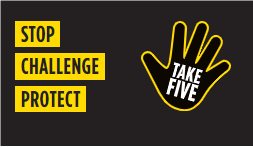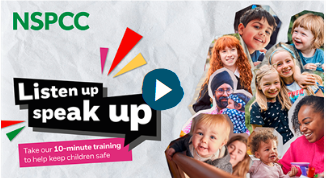|
||||||||||||||||
|
||||||||||||||||
|
|
||||||||||||||||
Dear Resident
If you find this information helpful please “rate” this message at the bottom (very quick and simple).
Rise in identity theft Criminals can steal your identity in a number of ways, for example finding your credit card or bank statements in your rubbish or stealing your driving licence or bank card. They can use personal details such as your name, date of birth, current and previous addresses and much more to commit identity theft. Help to prevent identity theft by: If you think you’ve been a victim of identity theft notify Action Fraud and your bank. For more information on identity theft prevention visit Take Five and Action Fraud.
CrimeStoppers Burglary Campaign CrimeStoppers (CS) have launched a new campaign across Hampshire and IOW to help prevent and reduce burglaries. In 2023/2024, there were 2,814 residential burglary crimes reported by Hampshire and IOW Constabulary. Criminal gangs can target the most vulnerable in communities and the campaign aims to gather information about who's behind house burglaries, thefts from sheds and garages or keyless car thefts.
All CS want to know is what you know, you may have information about these people, or those who are planning burglaries or selling stolen items such as power tools and jewellery. CrimeStoppers won’t judge or ask for any personal details, they guarantee you’ll remain 100% anonymous.
Halloween ‘No trick or treat’ posters Hampshire and IOW Constabulary’s ‘No trick or treat’ poster is available for display if you don’t want trick or treaters at your door this Halloween. This poster can be displayed in your home, or homes of any neighbours or relatives. It should be displayed in a prominent position either on the front door or front window. You can download the poster from our website here.
Using a waste carrier? Follow the S.C.R.A.P Code. Fly-tipping is the illegal dumping of waste. It's a crime that damages the environment, risks public health and costs taxpayers to clean up. You must use a licenced waste carrier or take your waste to a registered site.
Using a waste carrier? Follow the S.C.R.A.P Code: Suspect all waste carriers, ask to see their licence and note their vehicle registration. Check that a waste carrier is licenced. Refuse any unexpected offers to have your rubbish taken away. Ask how your rubbish will be disposed of. Paperwork must be obtained: a proper invoice, waste transfer note or receipt, including a description of the waste being removed and the waste carrier’s contact details.
Top five frauds aimed at students Action Fraud, the national fraud and cybercrime reporting service, has launched a student safety campaign, revealing the top frauds to look out for and how to prevent themselves from becoming a target. What are the top fraud types to look out for as a student? 1. Investment Fraud Criminals target students (often via social media) looking to make quick-wins.
2. Fake Job Fraud Fraudulent adverts aimed at stealing personal information or money.
3. Rental Fraud Fraudsters ask students to pay fees in advance without seeing a property first.
4. Online Shopping Fraud Fraudsters will create fake websites or replicate legitimate online stores to obtain personal details.
5. Ticket Fraud Fraudsters will use opportunities, like highly in-demand events, to target students by selling fake tickets. For more information visit the Action Fraud website.
NSPCC ‘Listen up, Speak up’ training NSPCC are encouraging every adult in the UK to take their 10 minute digital training and learn how to listen up and speak up for children. Listen up, Speak up will show you: Who you can contact if you’re ever concerned about a child or their family.
| ||||||||||||||||
Reply to this message | ||||||||||||||||
|
||||||||||||||||
|
|
|















